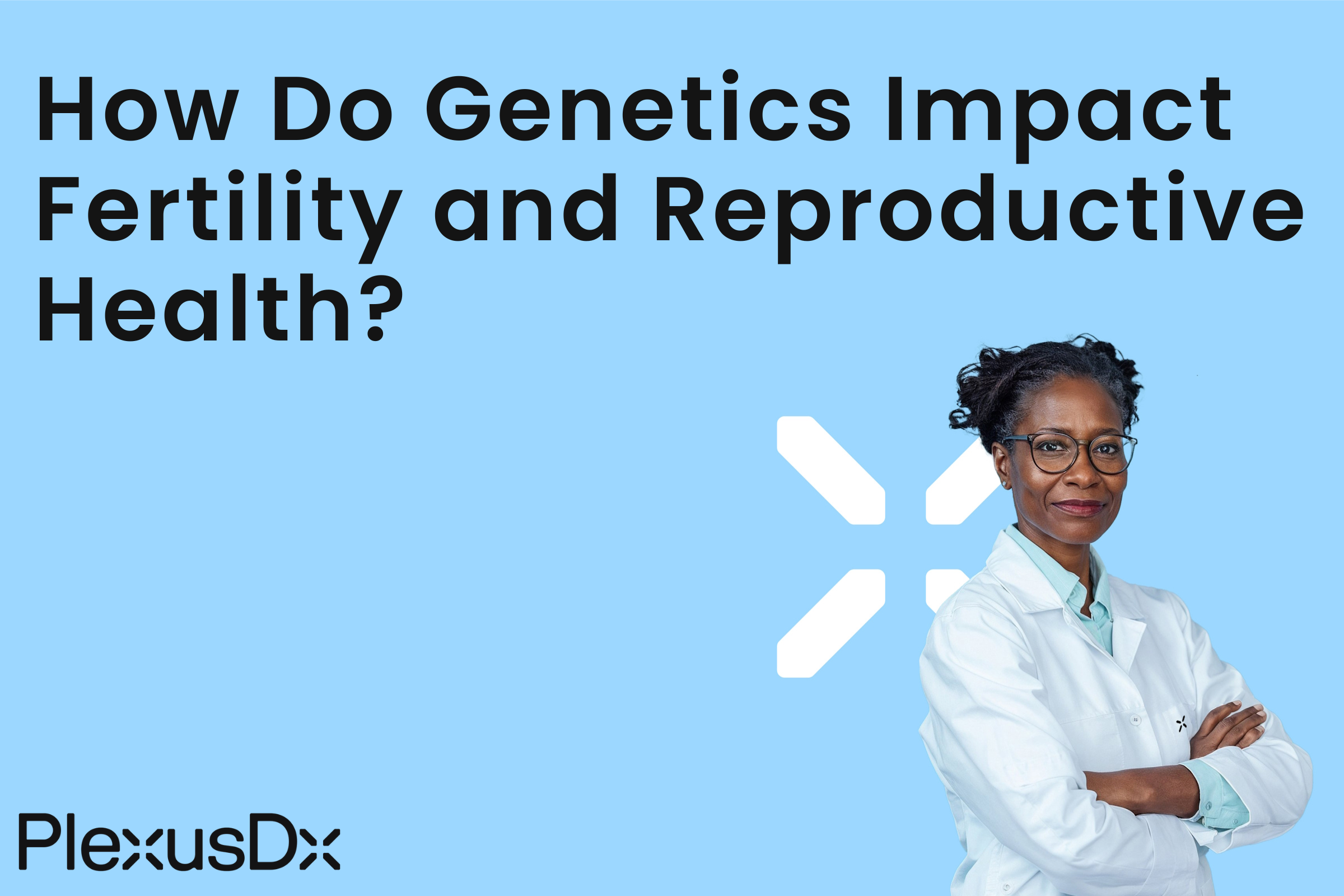What is the connection between genetics and fertility as well as reproductive health?
Do you find yourself questioning why some couples face difficulties getting pregnant while others don't seem to encounter any problems? The answer usually resides in the complex realm of genetic science. By learning about the influence of genetics on fertility and reproductive health people and couples gain the ability to make educated decisions about family planning. This article examines genetic factors in fertility and reproductive health while offering actionable steps to manage these complexities.
The Genetic Blueprint of Fertility
Our genetic makeup forms the fundamental basis of our reproductive health. Our genetic makeup determines the functioning of hormones as well as the quality of reproductive cells like eggs and sperm. Specific genetic disorders like Turner syndrome and Klinefelter syndrome result in infertility because they involve chromosomal irregularities. The development of reproductive organs and hormone production can be disrupted by these conditions which subsequently increase the difficulty of conception.
Our genetic makeup affects how reproductive hormones function within our bodies. Genetic variations found in estrogen and progesterone receptor genes can disrupt normal ovulation patterns and menstrual cycle regularity. Genetic factors can prevent a woman's body from properly using her eggs even though she continues to produce them.
The genetic makeup of males determines their fertility capabilities. Genetic mutations often result in reproductive problems such as diminished sperm count or reduced sperm movement. Early identification of potential genetic challenges allows couples to implement focused interventions through understanding these genetic factors.
Common Genetic Factors Affecting Fertility
Multiple genetic components significantly affect fertility and reproductive health.
- Chromosomal Abnormalities: Women with Down syndrome or Turner syndrome face higher chances of infertility and miscarriage.
- Single Gene Disorders: Cystic fibrosis emerges as a single gene disorder that harms reproductive organs and causes infertility in both male and female patients.
- Hormonal Imbalances: Genetic differences have the potential to alter hormone concentrations which then affect both ovulation and sperm production.
- Age-Related Genetic Factors: The quality of eggs in women deteriorates with age because of accumulated genetic factors.
Couples experiencing fertility issues must understand genetic influences to find the best solution. It helps identify potential risks while directing individuals to suitable testing procedures and treatment methods.
Actionable Steps to Tackle the Genetic Basis of Fertility
The initial phase in managing fertility involves understanding the genetic factors that influence it. These practical tips will guide you through managing your reproductive health effectively.
- Genetic Testing: Undergo genetic testing to detect any fertility-related genetic issues. Genetic assessments can detect chromosomal irregularities and mutations that might affect reproductive function. The details gained from genetic testing may prove essential when making decisions about family planning.
- Consult a Specialist: A fertility specialist or genetic counselor can deliver individualized information about your reproductive health. These professionals analyze genetic test outcomes while proposing suitable treatments including IVF and preimplantation genetic testing (PGT).
-
Lifestyle Modifications: Genetics have a major influence on fertility while lifestyle choices also affect reproductive capabilities. Here are some changes you can make:
- Maintain a Healthy Weight: Body weight extremes such as being underweight or overweight both influence hormone levels and disrupt normal ovulation.
- Eat a Balanced Diet: Consuming foods that consist of fruits, vegetables, whole grains and lean proteins helps maintain reproductive health.
- Limit Alcohol and Caffeine: Drinking too much alcohol and caffeine can cause negative effects on fertility capabilities.
- Manage Stress: To maintain hormonal balance it is important to manage stress through relaxation practices such as yoga and meditation.
- Stay Informed: Knowledge is power. Maintain your knowledge of current research developments and scientific breakthroughs in reproductive health and genetics. Educated choices about your fertility journey become possible through this knowledge.
Conclusion
Genetic factors exert a crucial influence on reproductive health by determining hormone levels and reproductive cell quality. Couples who understand genetic factors can actively work to solve possible reproductive health problems. Multiple approaches such as genetic testing and specialist consultations combined with lifestyle modifications provide various options to improve reproductive health.
Interested individuals who want to investigate their health further should explore the Precision Health & Wellness tests offered by PlexusDx. These tests provide important information about your genetic profile and its potential effects on your general health. Available purchases for these tests are offered on PlexusDx.com along with Amazon and Walmart. Genetics play an important role but represent only one aspect of the health puzzle. Seek guidance from a healthcare provider to address any reproductive health concerns or inquiries.
Where to Buy PlexusDx Genetic Tests
Ready to take control of your health with precision genetic insights? You can purchase the PlexusDx Hormone and Reproductive Health Genetic Test from these trusted retailers:
- 👉 PlexusDx – Order directly from our official website.
- 👉 Amazon – Convenient shopping with fast shipping.
- 👉 Walmart – Buy online from a trusted retailer.
Get your personalized DNA insights today and start optimizing your health! 🚀

Share:
How Do Genetics Influence My Cravings for Sugar or Salty Foods?
How Does DNA Testing Assess Hormone Balance?